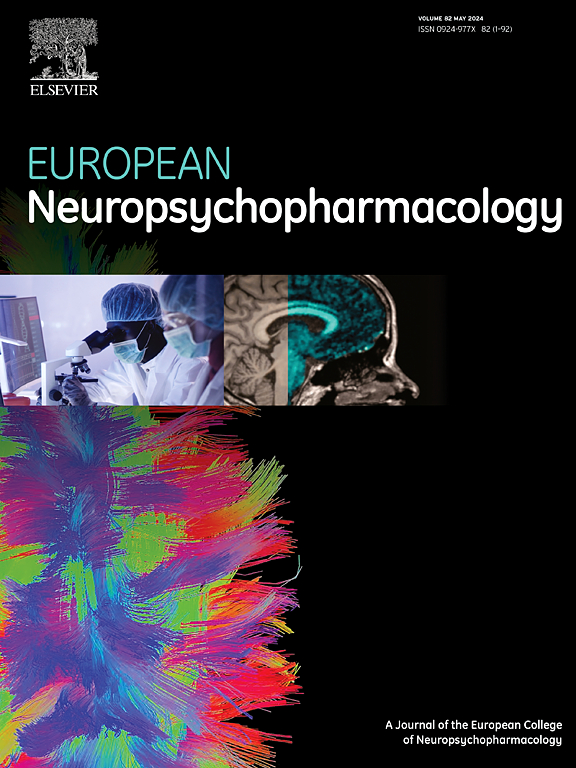将成瘾遗传学带入临床:我们做到了吗?
IF 6.7
2区 医学
Q1 CLINICAL NEUROLOGY
引用次数: 0
摘要
精确精神病学正在快速发展,未来几年将发生变革。几十年的家庭和双胞胎研究已经证实,精神疾病具有家族性和遗传性。随着全基因组关联研究的出现,我们对影响精神疾病的遗传因素的理解取得了巨大进展;人类基因组中的数百个位置与疾病的不同方面有关,而且这个名单每年都在扩大。许多这些DNA风险变异在精神疾病甚至躯体疾病中都是共有的,这为定义和潜在治疗精神疾病提供了新的方法。突然间,人们有理由乐观地认为,基因研究可能会影响临床领域,并对诊断和治疗产生重要影响。但这只是冰山一角。本次演讲将讨论精神遗传学领域的最新进展,借用物质使用障碍领域的例子,并询问我们距离实现精确精神病学的承诺还有多远。本文章由计算机程序翻译,如有差异,请以英文原文为准。
BRINGING ADDICTION GENETICS INTO THE CLINIC: ARE WE THERE YET?
Precision psychiatry is advancing at a rapid pace, and the coming years are poised to be transformative. Decades of family and twin studies have established that psychiatric disorders have a familial and heritable component. With the advent of genome-wide association studies, our understanding of the genetic factors influencing psychiatric conditions has progressed tremendously; hundreds of locations in the human genome have been implicated in different aspects of disease, and the list is expanding each year. Many of these DNA risk variations are shared across psychiatric and even somatic conditions, and suggest new ways of defining and potentially treating psychiatric conditions. Suddenly, there may be a cause for optimism that genetic research may impact clinical arenas and have important implications for diagnosis and treatment. But this is only the tip of the iceberg. This talk will discuss recent advances in the field of psychiatric genetics, borrowing examples from the field of substance use disorders, and interrogate how far are we from realizing the promise of precision psychiatry.
求助全文
通过发布文献求助,成功后即可免费获取论文全文。
去求助
来源期刊

European Neuropsychopharmacology
医学-精神病学
CiteScore
10.30
自引率
5.40%
发文量
730
审稿时长
41 days
期刊介绍:
European Neuropsychopharmacology is the official publication of the European College of Neuropsychopharmacology (ECNP). In accordance with the mission of the College, the journal focuses on clinical and basic science contributions that advance our understanding of brain function and human behaviour and enable translation into improved treatments and enhanced public health impact in psychiatry. Recent years have been characterized by exciting advances in basic knowledge and available experimental techniques in neuroscience and genomics. However, clinical translation of these findings has not been as rapid. The journal aims to narrow this gap by promoting findings that are expected to have a major impact on both our understanding of the biological bases of mental disorders and the development and improvement of treatments, ideally paving the way for prevention and recovery.
 求助内容:
求助内容: 应助结果提醒方式:
应助结果提醒方式:


